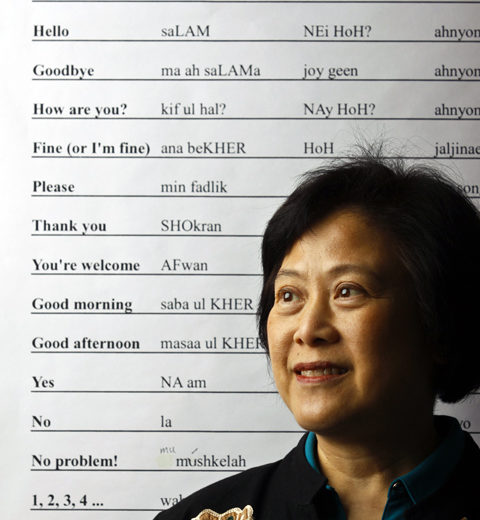
"It wasn’t long ago that a common perception in the medical field was that Asian-Americans didn’t have many health problems because they were not visiting the public health clinics," says registered dietitian Beverly Gor, EdD, RD, LD, CDE. "But they weren’t going because of a lack of culturally appropriate services. For example, there was one lady who went to a clinic and when she was called to be seen, the staff didn’t pronounce her name right. After awhile she went home and the clinic thought that she never came. It’s such little thing, but it represents a big gap."
Gor researches nutrition and cancer prevention in minorities through her work as a postdoctoral fellow and Texas Scholar in Health Disparities at the Center for Research on Minority Health at the University of Texas M.D. Anderson Cancer Center in Houston, Texas—home to the third largest Asian population in the United States.
"When I finished my doctoral degree, I met a Vietnamese student who was working on her master’s degree in public health. We were both concerned that Asian health disparities were not being addressed," says Gor, who is Chinese-American. So in 1994, she co-founded the Asian American Health Coalition—dedicated to improving the health of Asian Americans by promoting health access, knowledge and disease prevention. One of its most significant services—and challenges—is screenings.
"In Asian populations as a whole, a traditional perspective when it comes to preventive services like screenings can be of suspicion," says Gor. "The thought is, 'As long as I eat well and sleep well, why should I go looking for problems?' It took awhile to change this mindset, and it took people from the community discussing their health issues." It wasn’t long before other groups interested in working with the Asian-American population began approaching the Coalition, and together they created awareness programs about issues ranging from cancers to osteoporosis to hepatitis B.
Gore had always had an interest in the role of nutrition in health, but when she first became concerned for the well-being of her community, she pursued the career that she felt would give her the tools she needed. She became a registered dietitian.
"It has been probably one of the most versatile degrees I could have ever gotten," says Gor, whose career has included clinical dietetics, community health and now public health and research. "I am a strong believer in community-based participatory research. You have to do one-on-one intervention, too, but for myself, this is my calling."
